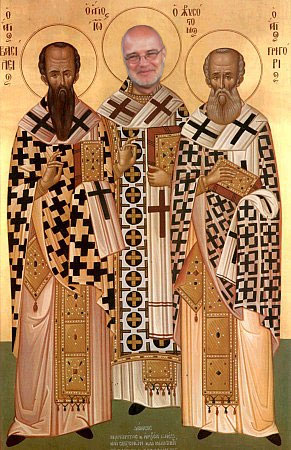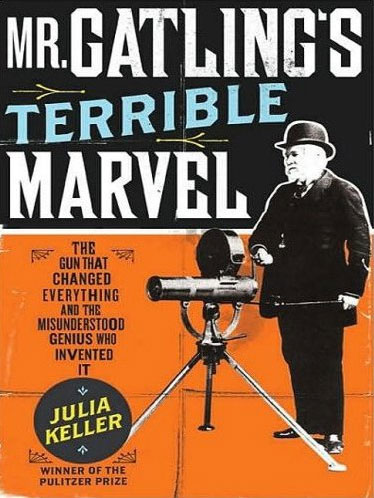Jun
4
2010

Reformation: Redefinition or Glorification?
Pastor David P. Cassidy discussed the redefinition of the “unchangeable Roman church” by Cardinal Newman, a component integral to the possibility of the revolutionary Vatican II, before taking listeners on a tour of the changes that swept through the institution in the twentieth century. Here is the conclusion of the lecture:
…Vatican II represents the most significant shift, not simply within the Roman Catholic Church and in our relationship with it, but in the whole history of church councils. Words such as charism, conscience, the priesthood of all believers, brothers and sisters, collegiality, and so on, dominate the discussions in the documents of the councils. Scholastic theological terminology is eschewed largely in favour of biblical vocabulary. Absent, gone, are words of intimidation and threat, and alienation and exclusion. Vatican II issued not a single doctrinal definition, though that is what councils had always done. Not a single anathema, not a single canon. Power words are gone, replaced by persuasion. Style, of course, has a lot to do with the difference in meaning, as the difference between prose and poetry makes clear. By its choice of language, Vatican II sought to present the Roman Catholic Church as one which retained an interior hierarchical reality, but with a new exterior, serving, personality.
So, what do we learn at the end of this tour?
Continue reading
Comments Off | tags: Church Fathers, Church History, David Cassidy, Liberal theology, Postmillennialism, Roman Catholicism | posted in Quotes
Apr
1
2010

Brian McLaren’s twists and turns are too subtle for a generation of Christians left vulnerable by ministers who don’t teach the Bible. Erich Rauch of American Vision is very helpfully working his way through Brian McLaren’s latest book, A New Kind of Christianity.
“Due to the strong influence that he has as a “pastor to pastors,” any time McLaren releases a new book it is a pretty big deal within the walls of the church. And because he is giving voice to concerns that many pastors and church leaders have expressed and thought about themselves, his writings indirectly resonate from American pulpits nearly every Sunday morning. His newest book, A New Kind of Christianity, claims to describe what Christianity might look like if it were “not afraid of questions.” Questions are a really big part of McLaren’s ministry. In fact, the subtitle of the book is: “Ten Questions that are Transforming the Faith.” Now I am certainly in favor of questions; I think that far too many people are far too easily satisfied with conventional ways of thinking and doing things. I agree with McLaren that questions can effect change; but I disagree with him and his book’s subtitle because it’s not the questions that cause the progress, it’s the answers. And unfortunately, this is where McLaren is his weakest.”
Continue reading
Comments Off | tags: Brian McLaren, Eric Rauch, Liberal theology | posted in Quotes
Sep
10
2009
 God’s one Law for Adam was temporary. He could eat from the Tree of Judicial Knowledge when mature enough to carry the responsibility. God’s food laws for Israel were also temporary. [1] When the Christ came, and the people of God was brought to maturity, this restricted menu, too, was done away with. It was designed to be outgrown. Not many theologians understand this process of Adam’s “historical maturity”, so they come up with other theories to explain why many Bible truths are not “timeless”. Peter Leithart discusses comments by John Polkinghorne this week:
God’s one Law for Adam was temporary. He could eat from the Tree of Judicial Knowledge when mature enough to carry the responsibility. God’s food laws for Israel were also temporary. [1] When the Christ came, and the people of God was brought to maturity, this restricted menu, too, was done away with. It was designed to be outgrown. Not many theologians understand this process of Adam’s “historical maturity”, so they come up with other theories to explain why many Bible truths are not “timeless”. Peter Leithart discusses comments by John Polkinghorne this week:
Continue reading
Comments Off | tags: Gnosticism, Liberal theology, Peter Leithart | posted in Biblical Theology, Quotes
Jul
26
2009

My friend Matt has been blogging about how postmodernism, with its openness to narrative, is a great opportunity for the gospel. But evangelicals need to sort themselves out first. Otherwise, to the world, they are just a bunch of Patsys. Patsy Biscoes that is.
Continue reading
4 comments | tags: Archaeology, Compromise, Gnosticism, Ideology, James Jordan, Liberal theology, N. T. Wright | posted in Apologetics, Biblical Theology
Jun
20
2009

or Typology: Deadly Weapon or game of Scattergories?
“Chiastic literary analysis has completely destroyed liberal literary criticism. Liberalism is in tatters, bleeding and dying. Liberalism cannot survive Dorsey’s chiastic proof of the total unity of Isaiah, for instance. Dorsey finds loads of 7-fold chiasms in the Bible. I’ve found scores more, quite independently. What Dorsey does not see is that these are recaps of the chiasm of the 7 days in Genesis 1. And that’s good, because it means he did not go through the Bible forcing passages into heptamerous chiasms. He just found them there, and others can see that these track Genesis 1 as ‘new creation’ passages.”
—James B. Jordan, A Reply on the Nature of the Psalter, Biblical Horizons blog, biblicalhorizons.wordpress.com, referring to David A. Dorsey, The Literary Structure of the Old Testament.
If chiastic literary analysis (along with typology as I posted recently) is such a powerful weapon against a modernist interpretation of the Bible, why are these methods of study shunned by those who oppose liberal theology? Why are theologians hauled over the coals for using it if it leaves the enemy in shreds?
Continue reading
4 comments | tags: David A. Dorsey, David Field, Liberal theology, Peter Leithart, Systematic typology, Typology, Warren Gage | posted in Apologetics, Biblical Theology, Totus Christus






























